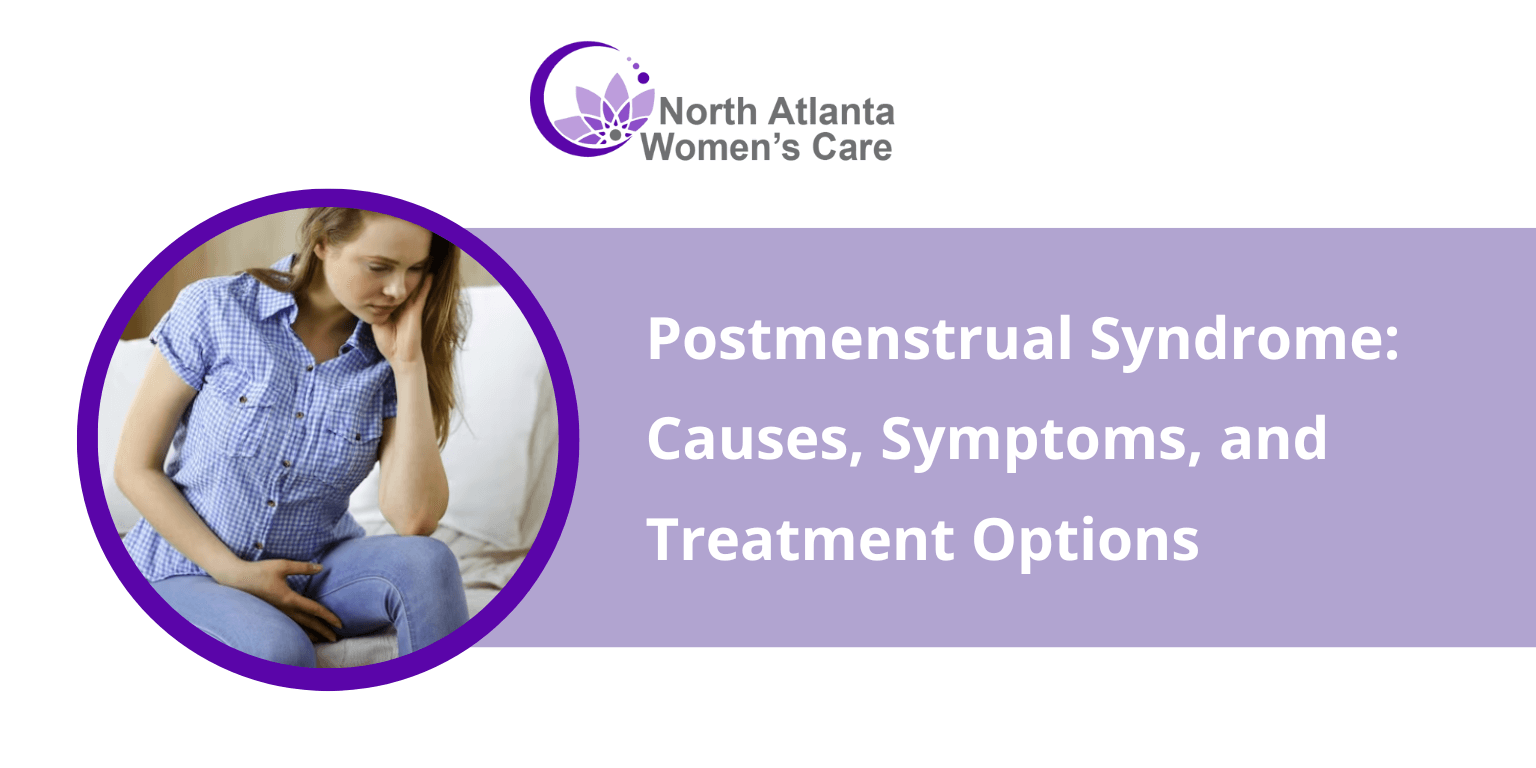Postmenstrual Syndrome: Causes, Symptoms, and Treatment Options

Postmenstrual syndrome is a condition that affects individuals after their menstrual period ends. Despite premenstrual syndrome (PMS) being more commonly recognized, postmenstrual syndrome is equally important, often affecting both mental and physical well-being. While everyone is familiar with premenstrual syndrome, with nearly 90% of women experiencing PMS, postmenstrual syndrome is a lesser-known condition, with only around 10% of women having its symptoms. Although postmenstrual syndrome is not yet recognized as a medical condition, the number of women experiencing it is gradually increasing.
In this blog, you will learn everything about postmenstrual syndrome.
Symptoms of Post Menstrual Syndrome
Postmenstrual syndrome symptoms are similar to premenstrual syndrome but cause more psychological distress. You may have the following symptoms:
- Fatigue
- Anxiety
- Irritability
- Depression
- Sleeping difficulties
- Mood swings
- Bloating
- Abdominal cramps
- Lack of coordination
- Headache
- General discomfort
- Vaginal pain during intercourse
Causes of Post Menstrual Syndrome
Postmenstrual syndrome can happen for a few reasons:
Hormones Changing: Hormones like estrogen and progesterone levels can increase, causing postmenstrual syndrome.
Neurotransmitter Changes: Elements in your brain, like serotonin, can also change and affect your mood.
Stress: Feeling stressed can make postmenstrual syndrome worse.
Genes: Sometimes, if your family has a history of postmenstrual syndrome, you might be more likely to get it.
Lifestyle: Not eating well, not exercising, and not sleeping enough can also contribute to postmenstrual syndrome.
Factors Influencing Post Menstrual Syndrome
Certain lifestyle habits may cause added stress that may lead to postmenstrual syndrome. They include:
Inadequate Sleep: Interrupted sleep or abnormal sleeping patterns may lead to irritability, anxiety, or other psychological and physical issues that manifest in postmenstrual syndrome symptoms
Nutritional Deficiency: Not eating proper and timely meals may result in certain vital nutrient deficiencies that can hamper your body's physical and mental well-being and can cause postmenstrual syndrome
High-stress Levels: Continual stress can compromise your overall wellness, and one of its effects may be postmenstrual syndrome
Menstrual Hygiene Products: Certain products can cause more significant discomfort during your period, and your body may develop postmenstrual syndrome in response to the discomfort
Preventive Tips and Natural Remedies for Post Menstrual Syndrome
You can prevent postmenstrual syndrome by incorporating healthy lifestyle habits in your daily life, including:
Regular Exercise: Regular exercise keeps you healthier and promotes healthy eating and sleeping habits. Besides keeping you physically fit, yoga also impacts your mental health as it offers stress-reducing breathing and relaxation techniques.
Healthy Diet: Plenty of iron-rich food helps compensate for the body's iron loss due to bleeding. Foods with high omega-3 fatty acids have anti-inflammatory properties, and calcium-rich foods help with period cramps and combat mood swings.
Sufficient Sleep: Practicing good sleeping habits helps to deal with anxiety, fatigue, and sleeping disorders.
Medical Treatments for Post Menstrual Syndrome
Your gynecologist may offer the following treatment options based on your postmenstrual syndrome symptoms:
Supplements: Supplements equip you to manage your postmenstrual symptoms better. Iron helps overcome blood loss during menstruation, magnesium helps with mood swings and sleeping difficulties, and vitamin D helps with fatigue.
Anti-depressants: Taking anti-depressants eases the depression that you may be feeling during this period.
Hormonal contraceptives: Hormonal contraceptives are used to prevent ovulation. It can be utilized for postmenstrual syndrome as it offers pain relief and also reduces mood swings.
Cognitive Behavioral Therapy (CBT): Your mental health is more affected during premenstrual syndrome, and CBT can be an effective treatment to equip you with the tools to manage your symptoms.
Acupuncture: Acupuncture therapy benefits several postmenstrual syndrome symptoms, such as abdominal pain and cramping, headaches, and mood swings.
When to Seek Professional Help for Postmenstrual Syndrome?
Suppose you experience severe symptoms that impact you both physically and mentally once you stop menstruating, and this continues over a couple of months. In that case, you may be suffering from postmenstrual syndrome. Once you are assured that it's not a one-off thing, you must consult your gynecologist for proper diagnosis and treatment of your condition.
Get the Best Treatment for Postmenstrual Syndrome at North Atlanta Women's Care
Our team of expert gynecologists at North Atlanta Women's Care offers the most advanced diagnostic and treatment plans. We are the preferred healthcare facility for a wide range of women's health for our patients across Suwanee/Johns Creek, Alpharetta, Cumming, and Lawrenceville, GA. Contact us today to learn more about our services.
FAQs
Q. When Does Postmenstrual Syndrome End?
A. Postmenstrual syndrome can take a few days to a few weeks to end.
Q. How Long Do Postmenstrual Symptoms Last?
A. Its symptoms usually last a few days, but in some cases, they can extend for up to two weeks.
Q. Why Am I so Exhausted After my Period?
A. This is due to reduced iron and estrogen levels in the body after your period.
Comments are closed

